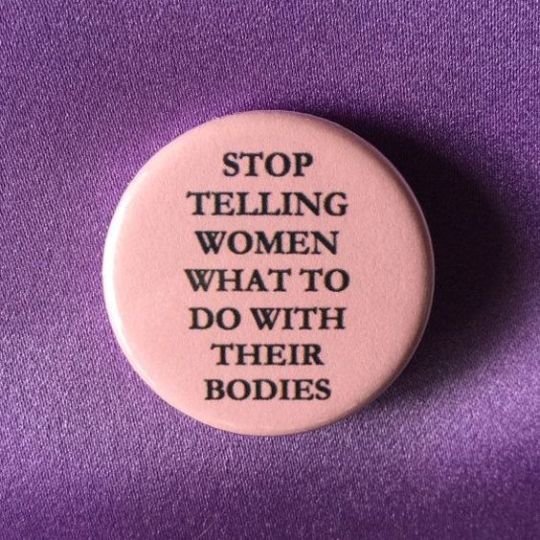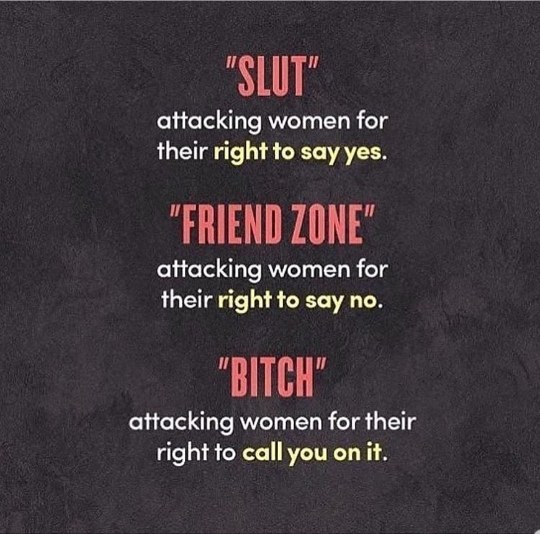Photo

Happy International Women’s Day!!!🌹💐💕
10K notes
·
View notes
Text
“No black woman writer in this culture can write “too much”. Indeed, no woman writer can write “too much”…No woman has ever written enough.”
— from Remembered Rapture: The Writer at Work, by Bell Hooks, born September 9, 1952.
(via universitybookstore)
5K notes
·
View notes
Link
Feminist Narration In Song -
Sung by a woman
Promotes independency
Promotes confidence
Lyric Excerpt:
You don't own me
I'm not just one of your many toys
You don't own me
Don't say I can't go with other boys
Don't tell me what to do
And don't tell me what to say
Please, when I go out with you
Don't put me on display
You don't own me
Don't try to change me in any way
You don't own me
Don't tie me down 'cause I'd never stay
0 notes
Text
10 Things I Hate About You - Film Analysis
Film Info: https://www.imdb.com/title/tt0147800/?ref_=tt_sims_tt
Director: Gil Junger
Year Released: 1999
In 10 Things I Hate About You, Kat is an independent and feisty teenager. She doesn’t care what others think about her and she openly speaks her mind. Her younger sister Bianca cares about her popularity in school and wants to date a popular guy. Bianca looks down on Kat for not being interested in dating boys and for not dressing in a way to please them. Later in the film, Kat tells Bianca that after having sex with a popular guy she regretted it and the relationship ended. This experience led Kat to not care about being popular, and to instead be the person she wanted to be. By the end of the movie, Kat figures out that she can still be her own person and maintain a strong sexual identity.
The characters of Kat and Bianca are shown as two archetypes in the way they are portrayed as women. Kat presents as nonsexual, closed off and is referred to as a bitch. Bianca wants male attention and to maintain her popularity by keeping up with the latest trends and presenting herself in a hyper-feminine way.
0 notes
Photo

instagram.com/florencegiven x instagram.com/i_weigh
1K notes
·
View notes
Text
Easy A - Film Analysis
Film Info: https://www.imdb.com/title/tt1282140/?ref_=nv_sr_3?ref_=nv_sr_3
Director: Will Gluck
Year Released: 2010
In Easy A, Olive takes her sexualization into her own hands. She was slut shamed for allegedly hooking up with someone at a party (after lying about losing her virginity to her best friend) and instead of denying it or hiding in shame, she embraced being a “slut” and wore provocative clothing and became more outgoing and bold. This film shows the double standard between men and women because the guys were seen as cool for allegedly having sex with Olive, where Olive was ostracized for appearing to be sexually active.
0 notes
Text
Pariah - Film Analysis
Film Info: https://www.imdb.com/title/tt1233334/
Director: Dee Rees
Year Released: 2011
In Pariah, Alike struggles with living authentically as she has to change her identity in order to fit in at home and then with her friend Laura. Throughout the film she changes her appearance and the way she communicates physically and verbally to others depending on who she is with. Her mother wants her to look, act, and essentially be another person so Alike doesn’t have the opportunity to explore her identity around her family or around people who know her family (especially because her mother keeps her away from Laura). Alike gets the chance to self-explore when she meets Bina because she doesn’t have to hide herself and can open up romantically to her. At the end of the film it is clear that Alike found herself as she finally left her house and wrote a poem about being free. Her new identity stemmed from her two opposing worlds and the loss of who people wanted her to be.
in this film it was hard for Alike to explore her sexual identity and when she did, she was dismissed by Bina, the person she thought understood her. Alike’s mother wanted her to conform to heterosexual stereotypes and refused to accept her sexuality.
0 notes
Quote
Identity is perceptible only through a relation to an other-which is to say, it is a form of both resisting and claiming the other, declaring the boundary where the self diverges from and merges with the other. In that declaration of identity and identification, there is always loss, the loss of not-being the other and yet remaining dependent on that other for self-seeing, self-being.
Peggy Phelan (pg. 125)
Phelan, Peggy. “Broken Symmetries: Memory, Sight, Love.” The Feminism and Visual Culture Reader, edited by Amelia Jones, Routledge, 2010, pp. 118–127.
Quote Analysis:
Often in film women are not given the opportunity to declare their own identity. They are merely props to push the other characters forward, and their identity is not self-chosen.
0 notes
Quote
[Asian women need to place themselves]…in the role of subjects creatively engaged in constructing [their] own images based both in [their] material and social conditions and in [their] visions and imaginations.
Pratibha Parmar (pg. 391)
Parmar, Pratibha. “Hateful Contraries: Media Images of Asian Women .” The Feminism and Visual Culture Reader, edited by Amelia Jones, Routledge, 2010, pp. 385–391.
Quote Analysis:
There are many harmful representations of Asian women in the mainstream media and in turn, in the film industry. These harmful representations impact how Asian women are portrayed onscreen. One representation is the beggar, specifically stated as the “black problem” (pg. 386). This representation came about after enslaved people from Asia were left stranded in Britain and had to resort to begging in the streets in order to survive. Other representations revolve around Asian women’s fertility and sexuality. Asian women are only shown in the media as mothers (never independent), or women alluding sexuality or virtuousness (often for the male gaze). Another representation makes it seem as though Asian women are quiet and passive. The media often reports on “submissive Asian women” who are forced into arranged marriages and are required to obey the head of the house. Theorist Pratibha Parmar believes that the only way to squash these representations is to give women of color the space and resources needed to produce their own stories.
1 note
·
View note
Text
Strawberry Fields - Film Analysis
Film Info: https://www.imdb.com/title/tt0108233/?ref_=nv_sr_2?ref_=nv_sr_2
Director: Rea Tajiri
Year Released: 1997
In Strawberry Fields, the story centers around the development and experiences of female characters who are not sexualized or portrayed in the way that most women (especially women of color) are in mainstream media (ex. over-sexualized, weak, passive, etc.). Instead, the story focuses on how historical trauma can impact the various generations in a family and the director specifically chose to show the effects through different female characters which allowed them to create and share their own stories and truths. The character of Irene is also the exact opposite of the harmful stereotypes mentioned above as her character regularly spoke her mind, openly shared her emotions, and often went against the rules or what was expected of her. She was also strong in her sexuality (had sex and didn’t feel shameful about it) and did not solely depend on her boyfriend to bring her happiness. Irene set out to find the truth about her family without her boyfriend, and even went to the deserted internment camp site without her best friend. She was strong in her beliefs and was determined to find out the truth so that it could bring peace for herself and her family.
0 notes
Quote
There is, in my view, nothing about femaleness that is waiting to be expressed; there is, on the other hand, a good deal about the diverse experience of women that is being expressed and still needs to be expressed...
Judith Butler (pg. 491)

1 note
·
View note









